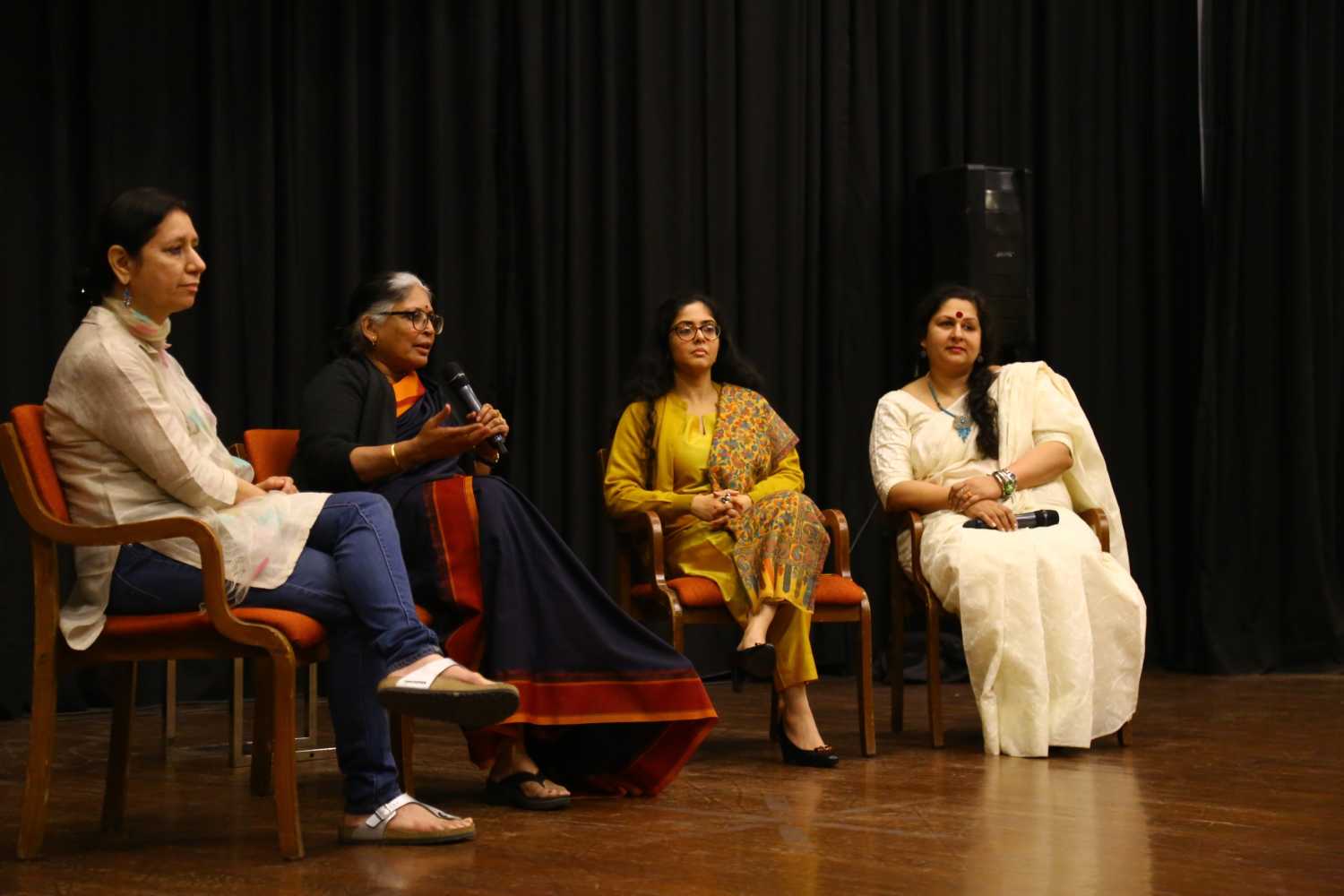IAWRT-India discussed its 2019 festival’s theme, The Female Gaze, and the many ways in which this can break barriers and push inclusivity.
We need to break the male genius cult: Anandana Kapur at AWFF 2019
New Delhi - 11 Mar 2019 13:00 IST


Prateek Rawat
On the second day of the 15th Asian Women’s Film Festival, after the screening of the Bangladeshi film Under Construction, the IAWRT organized a panel discussion on the festival's eclectic yet topical theme, The Female Gaze.
The discussion was moderated by Bina Paul, film editor and artistic director of the International Film Festival of Kerala, and had filmmaker Anandana Kapur, festival director Gauri D Chakraborty, and academician Jeroo Mulla as speakers.
Highlighting the centrality of the phrase in the festival’s curatorial practice over the past 15 years, Bina Paul said: “It is important for IAWRT to understand the layers of the female gaze, ever since it was explained by [British feminist film theorist] Laura Mulvey. What is the notion of a women’s film festival? What is women's cinema? Are we examining a narrative that has come to emerge from our practices and our work as curators and filmmakers?”
As the festival director for this year’s edition, Chakraborty said, “The discourse on women’s cinema and the female gaze at such a film festival is a continuum and must move forward. Digital technologies have given greater reach and access to filmmakers. There is a distinct pool of young female filmmakers at the festival this year, and many have overwhelmingly reached out to showcase their work. A women’s film festival brings out our responsibility — to exhibit how these female storytellers are looking at their lives and telling the stories of women.”
Kapur agreed: “Conversations around desire have been trapped in the male gaze in cinema. It is interesting to note the way in which the female gaze acknowledges how women’s desire is coursing, pulsating, thriving and breaking in these films and elsewhere."
The filmmaker said it was also important to look at all the nuances within the female gaze. "In our curation of telling these experiences through the female gaze, we are also really looking at who is making these images and the rhythms behind them,” she said.
The discussion meandered through several circumstances that women filmmakers have encountered. From an industry that privileges men and the male gaze to working with overwhelmingly male crews that often tend to undermine a female filmmaker, the doubts and dilemmas about one’s own skill to the doubts created by society, female filmmakers have to navigate a series of social, cultural, economic and psychological circumstances. A key example is the #MeToo movement originating in the media and film industries in India.
“We need to break the male genius cult," Kapur asserted. "We must hold men accountable and cannot separate the man from the art, as is often done.”
There is anxiety in society today about being called a feminist, causing some to dismiss gender in the delusion of preferring an invalid idea of humanity. In response to one such query from a member of the audience about not caring about gender and focusing instead on one’s profession, Jeroo Mulla said, “Even if you don’t think you are a woman filmmaker, what we as filmmakers who are women must do is to acknowledge our privilege which has led to us becoming filmmakers. And to use this privilege to tell the stories of all under-privileged and oppressed women and other marginalized communities who cannot do so on their own terms to a wider audience.”
Bina Paul ended the short discussion with a call for gender education. “Gender has to be weaved into film school curricula and film appreciation courses," she said. "Not simply as a sensitization tool, but as an educational gaze. We need to develop a process where creative communication can take place when you are sharing a vision. We need gender education in film and art, that whether you are a man or a woman you can understand and share that creative vision."
Ultimately, the female gaze is a complex theme for the festival. It is not simply an inclusion of what may traditionally be described as women’s cinema but also a revaluation of cinema itself, along with a reimagining of what it is to be a woman.
The female gaze as a concept deserves to be understood through the nuances of the inclusion of caste, class, sexual orientation and other genders. Only then can it avoid the pitfalls of essentialism that the male gaze has always propagated.
AWFF is a necessary attempt in the long journey to understand the potential and the process of the female gaze. It is both a curatorial intervention into the present of cinema as well as the writing of the history of filmmaking practices.
The Asian Women’s Film Festival was held from 5-7 March at the India International Centre in New Delhi. The festival screened over 50 films from 20 countries by female filmmakers in different formats, held workshops and panel discussions, and even had an art installation.
Related topics
IAWRT Asian Women's Film Festival


